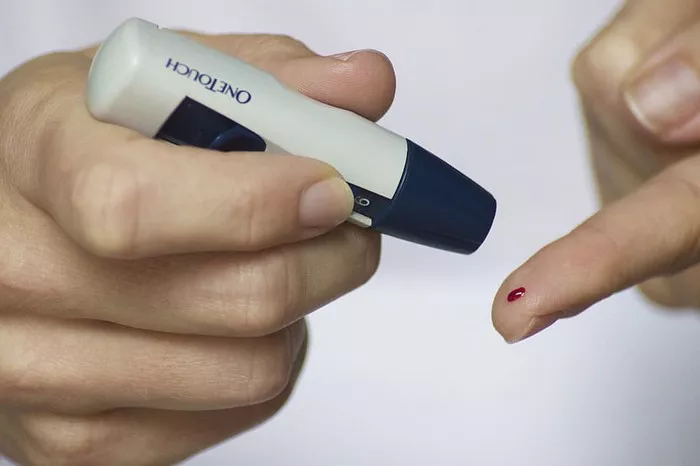Diabetes mellitus, a chronic metabolic disorder, affects millions of individuals worldwide and is characterized by abnormal blood glucose levels. Within the realm of diabetes management, two critical conditions often arise: hypoglycemia and hyperglycemia. Understanding these conditions is paramount for both patients and healthcare providers to ensure effective diabetes management and prevent complications. This article delves into the distinctions between hypoglycemia and hyperglycemia, exploring their causes, symptoms, treatments, and implications for diabetic care.
Hypoglycemia: An Overview
Hypoglycemia, commonly referred to as low blood sugar, occurs when blood glucose levels drop below normal ranges. Typically, a blood glucose level below 70 mg/dL (3.9 mmol/L) is considered hypoglycemic, although this threshold can vary slightly depending on individual circumstances.
Causes of Hypoglycemia
Medication: One of the most common causes of hypoglycemia in individuals with diabetes is the use of insulin or other glucose-lowering medications. Overdosing on these medications, either intentionally or accidentally, can lead to dangerously low blood sugar levels.
Diet: Skipping meals, not eating enough carbohydrates, or delaying meals can result in hypoglycemia. This is particularly common in people who take insulin or oral hypoglycemic agents.
Exercise: Physical activity increases insulin sensitivity and glucose uptake by muscles, which can sometimes lead to hypoglycemia, especially if the exercise is prolonged or intense and not balanced with adequate food intake.
Alcohol Consumption: Alcohol can interfere with the liver’s ability to release glucose into the bloodstream, increasing the risk of hypoglycemia, particularly in individuals who drink on an empty stomach.
Medical Conditions: Certain medical conditions, such as adrenal insufficiency, severe liver disease, and some hormone deficiencies, can cause hypoglycemia.
Symptoms of Hypoglycemia
Hypoglycemia can present with a wide range of symptoms, which are generally divided into adrenergic (related to the adrenaline response) and neuroglycopenic (related to a lack of glucose in the brain) symptoms.
- Adrenergic Symptoms: These include shakiness, sweating, palpitations, anxiety, and hunger. They are typically the body’s first response to low blood sugar.
- Neuroglycopenic Symptoms: As hypoglycemia progresses, symptoms related to brain function become more prominent. These include confusion, difficulty concentrating, dizziness, headache, blurred vision, slurred speech, and in severe cases, seizures, loss of consciousness, or coma.
Treatment of Hypoglycemia
The treatment of hypoglycemia involves promptly raising blood glucose levels. The approach varies depending on the severity of the hypoglycemia and the individual’s circumstances.
Mild Hypoglycemia: This can often be treated with the “15-15 rule”: consuming 15 grams of fast-acting carbohydrates (such as glucose tablets, fruit juice, or regular soda) and checking blood glucose levels after 15 minutes. If levels remain low, the process is repeated.
Moderate Hypoglycemia: When symptoms are more pronounced but the person is still conscious and able to swallow, consuming fast-acting carbohydrates as described above is essential, followed by a longer-acting carbohydrate once blood glucose levels begin to stabilize.
Severe Hypoglycemia: If the individual is unconscious or unable to swallow, an emergency treatment such as a glucagon injection or intravenous glucose is necessary. Glucagon kits should be readily available to individuals at risk of severe hypoglycemia, and caregivers or family members should be trained in their use.
Prevention of Hypoglycemia
Preventing hypoglycemia involves careful monitoring of blood glucose levels, understanding how different activities and foods affect these levels, and making appropriate adjustments to insulin or medication dosages. Strategies include:
- Regular blood glucose monitoring, particularly before and after meals, exercise, and before bedtime.
- Eating regular, balanced meals and snacks.
- Adjusting insulin or medication doses based on blood glucose readings, food intake, and physical activity.
- Educating patients on the recognition of early symptoms of hypoglycemia and appropriate corrective actions.
- Avoiding excessive alcohol consumption and ensuring it is accompanied by food.
Hyperglycemia: An Overview
Hyperglycemia, or high blood sugar, occurs when blood glucose levels exceed normal ranges. For individuals with diabetes, hyperglycemia is typically defined as a fasting blood glucose level above 126 mg/dL (7.0 mmol/L) or a postprandial (after meal) level above 180 mg/dL (10.0 mmol/L).
Causes of Hyperglycemia
Insufficient Insulin or Medication: Hyperglycemia often results from insufficient insulin or other glucose-lowering medications. This can occur due to missed doses, inadequate dosing, or problems with insulin delivery (e.g., issues with insulin pump infusion sites).
Diet: Consuming large amounts of carbohydrates, particularly simple sugars, can cause a spike in blood glucose levels, especially if not matched with appropriate insulin or medication.
Illness or Infection: Physical stress from illnesses or infections can cause the body to release hormones that increase blood glucose levels.
Stress: Emotional stress triggers the release of stress hormones like cortisol and adrenaline, which can raise blood glucose levels.
Sedentary Lifestyle: Lack of physical activity can contribute to hyperglycemia, as regular exercise helps improve insulin sensitivity and glucose uptake by muscles.
Hormonal Changes: Hormonal fluctuations, such as those occurring during menstruation or menopause, can affect blood glucose levels.
Symptoms of Hyperglycemia
Hyperglycemia can develop gradually and may be asymptomatic initially, but as blood glucose levels rise, symptoms become more apparent. These include:
- Increased Thirst (Polydipsia): High blood glucose levels cause the body to draw water from tissues, leading to increased thirst and frequent urination (polyuria).
- Fatigue: The body’s inability to use glucose effectively for energy can lead to persistent fatigue and weakness.
- Blurred Vision: High blood sugar levels can cause the lenses of the eyes to swell, leading to vision changes.
- Headaches: Frequent or severe headaches can be a symptom of hyperglycemia.
- Unintentional Weight Loss: In type 1 diabetes, hyperglycemia can lead to weight loss as the body breaks down fat and muscle for energy.
- Slow Healing: High blood glucose levels can impair the body’s ability to heal wounds and fight infections.
Treatment of Hyperglycemia
Managing hyperglycemia involves multiple strategies aimed at lowering blood glucose levels and preventing complications.
Medication Adjustment: Adjusting insulin or oral hypoglycemic medication dosages, based on blood glucose readings and medical advice, is crucial. Rapid-acting insulin may be required to bring blood glucose levels down quickly.
Dietary Modifications: Reducing the intake of high-carbohydrate foods and focusing on a balanced diet with low-glycemic index foods can help manage blood glucose levels.
Hydration: Drinking plenty of water helps the kidneys flush out excess glucose through urine.
Exercise: Regular physical activity helps lower blood glucose levels by increasing insulin sensitivity and promoting glucose uptake by muscles. However, exercise should be approached cautiously if blood glucose levels are extremely high (above 250 mg/dL) or if ketones are present in the urine, as this can indicate diabetic ketoacidosis (DKA), a serious condition that requires immediate medical attention.
Monitoring: Frequent blood glucose monitoring is essential to track trends and make informed decisions about medication, diet, and activity levels.
Prevention of Hyperglycemia
Preventing hyperglycemia involves maintaining a balanced approach to diabetes management through:
- Consistent Medication Use: Taking insulin or oral hypoglycemic medications as prescribed, without missing doses.
- Balanced Diet: Following a diabetes-friendly diet that is low in refined sugars and high in fiber, healthy fats, and lean proteins.
- Regular Physical Activity: Engaging in regular exercise to improve insulin sensitivity and overall metabolic health.
- Stress Management: Employing stress-reduction techniques such as mindfulness, meditation, or counseling to minimize the impact of stress on blood glucose levels.
- Regular Check-Ups: Attending regular medical appointments for comprehensive diabetes management, including monitoring for potential complications.
Comparative Analysis of Hypoglycemia and Hyperglycemia
While hypoglycemia and hyperglycemia represent opposite ends of the blood glucose spectrum, both conditions share the common feature of being related to the regulation of blood sugar levels. Their implications, however, differ significantly.
Physiological Impact
Hypoglycemia: The primary danger of hypoglycemia is the immediate and potentially severe impact on brain function due to inadequate glucose supply. Severe hypoglycemia can result in seizures, loss of consciousness, or even death if not promptly treated. Chronic hypoglycemia episodes can also lead to hypoglycemia unawareness, where the body no longer exhibits warning symptoms, increasing the risk of severe events.
Hyperglycemia: Chronic hyperglycemia can lead to long-term complications such as cardiovascular disease, neuropathy, nephropathy, and retinopathy. Acute hyperglycemia can also lead to emergencies such as diabetic ketoacidosis (DKA) in type 1 diabetes and hyperosmolar hyperglycemic state (HHS) in type 2 diabetes, both of which require immediate medical intervention.
Management Strategies
Hypoglycemia: Management focuses on immediate correction of low blood sugar through rapid-acting carbohydrates, along with long-term strategies to prevent recurrence. Education on recognizing early symptoms and understanding personal risk factors is crucial.
Hyperglycemia: Management involves lowering blood sugar through medication adjustments, dietary changes, and lifestyle modifications. Preventive measures include consistent medication adherence, regular monitoring, and proactive management of contributing factors such as illness or stress.
Psychological and Social Impact
Both hypoglycemia and hyperglycemia can have significant psychological and social impacts on individuals with diabetes. Fear of hypoglycemia can lead to anxiety and avoidance behaviors, such as not taking full medication doses to prevent low blood sugar episodes, which can paradoxically increase the risk of hyperglycemia and its complications. Conversely, chronic hyperglycemia can lead to frustration and feelings of helplessness, particularly if blood glucose levels remain difficult to control despite diligent management efforts.
See also:Stress Induced Hyperglycemia In Non Diabetics
Conclusion
Understanding the differences between hypoglycemia and hyperglycemia is essential for effective diabetes management. While hypoglycemia requires immediate action to prevent acute neurological damage, hyperglycemia management focuses on preventing long-term complications through comprehensive care. Both conditions highlight the delicate balance required in managing blood glucose levels and underscore the importance of patient education, regular monitoring, and a collaborative approach to diabetes care. By recognizing the distinct characteristics and treatment needs of hypoglycemia and hyperglycemia, individuals with diabetes and their healthcare providers can work together to achieve optimal blood glucose control and improve overall health outcomes.
Related topics:
How Does Pancreatitis Cause Hyperglycemia?



























